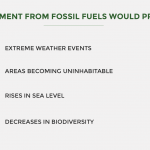
As Amir Feinberg walked into his housing selection appointment in April, he looked to his expectant roommates – two of whom were females – with concern. After researching his options, scouring Boston University Housing’s website and calling their department, he was surprised by a note scribbled on the white board in front of him: “One available gender-neutral room in Student Village I,” it read.
“We were a little skeptical going in that we were actually going to end up getting it,” said Feinberg, a College of Arts and Sciences junior. “It ended up just being luck for us. I know some of my other friends who tried to do it. They weren’t so lucky.”
Though some students were frustrated by their inability to acquire gender-neutral housing for the 2014-15 academic year, this is the first time BU is offering the option on a large scale, said Executive Director of Auxiliary Services Marc Robillard, who oversees university housing.
Additionally, the university accommodated every transgender student living on campus, he said.
“The emphasis came from the students,” Robillard said. “The housing people and the residence life people got together and said, how could a gender-neutral housing option work knowing that, on the administrative side, there wasn’t a great demand for it… Gender-neutral is 1 percent of the entire campus.”
Of the 51 residence spaces available for gender-neutral use across BU’s campus, 10 Buick St. (StuVi) offers a single gender-neutral room, now happily occupied by Feinberg, CAS senior Brock Meyer, School of Management junior Mollie Wasser and School of Hospitality junior Kayla Pichichero.
“It takes the stress off of things because I know these are three other people that I’m extremely comfortable with,” Feinberg said. “It’s just – home. It doesn’t feel like a dorm anymore.”
BU now houses over 140 students in gender-neutral living spaces, almost all of which were pre-selected by the university to avoid placing unwitting students in rooms with members of the opposite gender, Robillard said.
Still, some students have criticized the housing system for providing what they see as an inadequate number of gender-neutral living spaces on campus.
College of Communication sophomore Tom Laverriere planned to live in a Kilachand Hall quad with two males and one female. However, he was unable to acquire the gender-neutral room he, CAS sophomore Saira Malhotra, COM sophomore Tait Mancosky and College of Engineering sophomore Zach Lasiuk desired.
“The most frustrating and stressful part for us was finding out right at registration, and then because we didn’t want to lose our registration time, having to very quickly come up with a plan B,” he said. “The three of us guys ended up staying together, but we felt awful. Saira now had to be completely random, and we ourselves were also partially random in our suite. It took a little bit of time and stress to get to that point.”
Wasser said any group of students, regardless of gender, should be able to easily select into a room during their housing appointment.
“If you’re uncomfortable living with someone of the opposite gender, that’s fine. You shouldn’t have to do that,” she said. “But I don’t think they should put a limit on how many rooms are available for people. If there are two people of different genders who want to live together, and there’s a room that will fit them, they should get that room.”
Though this solution may seem feasible, several technological and logistical issues complicate the possibility of this type of “on-the-fly” accommodation, Robillard said.
“It’s a balancing act,” he said. “If we go through this, are we going to throw off our male-to-female allocation? We’re looking at the size of the freshman class, the transfer classes, we’re looking at all of that.”
Facing a consistently high demand for on-campus housing from an ever-changing proportion of female and male students, the university has to carefully allot adequate male and female bed spaces tuned to the makeup of BU’s student body, Robillard said.
“We really didn’t want another factor making that more difficult, so we played it close to the vest, so to speak, and took a conservative approach,” he said. “Next year, you’ll see us broadening this.”
Several major facets of BU’s operations are managed through a 25-year-old computer software system that links almost all of the electronic data managed by the university, Robillard said.
A total of 62 computer interfaces – including those that control billing, registration and financial aid at BU – are intertwined in a coding language that is difficult to significantly alter, Robillard said. The process of changing a room from an “M” (male) or “F” (female) designation to an “N” designation representing a gender-neutral space could take a matter of months.
“Now you’re in this ancient language trying to find the connections and make sure you don’t break anything, so it’s very fragile in that regard,” Robillard said. “You can break things inadvertently because you’re not aware of all the connections over there in the system.”
Though optimizing BU’s housing selection process to accommodate any and all “on-the-fly” requests for gender-neutral housing may be difficult, it is a capability BU housing is striving for. The university hopes to update its student-data coding system within two years, Robillard said.
“The first time through, we wanted to be really cautious. As we go forward, as the managers who kind of run the room assignments become more confident in what’s going on, you’ll see more flexibility,” he said. “I know that doesn’t help someone who was back a year ago, but in the big picture of things, it really is the best way to do it.”














